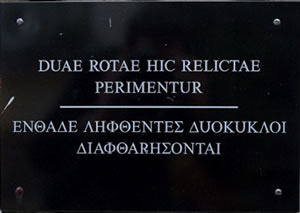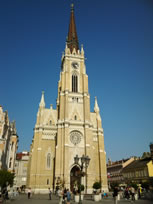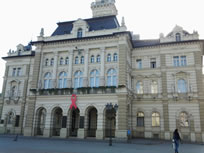I’m currently at the Polyglot Gathering in Berlin. I arrived here on Wednesday evening and have been speaking and hearing lots of different languages. So far I’ve had conversations in English, French, Welsh, German, Irish and Mandarin, and spoken bits and pieces of Spanish, Italian, Russian, Czech, Portuguese, Toki Pona and Esperanto. I’ve also heard some Finnish, Punjabi, Korean, Japanese, Polish, Slovak, Sardinian, Dutch, Hebrew, Indonesian, Norwegian, Swedish and other languages that I didn’t recognise.
Yesterday I went to talks on Portuguese Creole languages, Greek, language learning and linguistics, how to achieve advanced language competence, and on connections between cartoons and language learning. This morning I’ve been to talks on teaching multiple languages simultaneously, and languages and dialects of Sardinia. All the talks I’ve been to so far have been in English, apart from the Sardinian one, which was in Italian.
I’ve met lots of people I know from previous polyglot events, and lots of new people too. I might try to explore a bit more of Berlin at some point as well.




